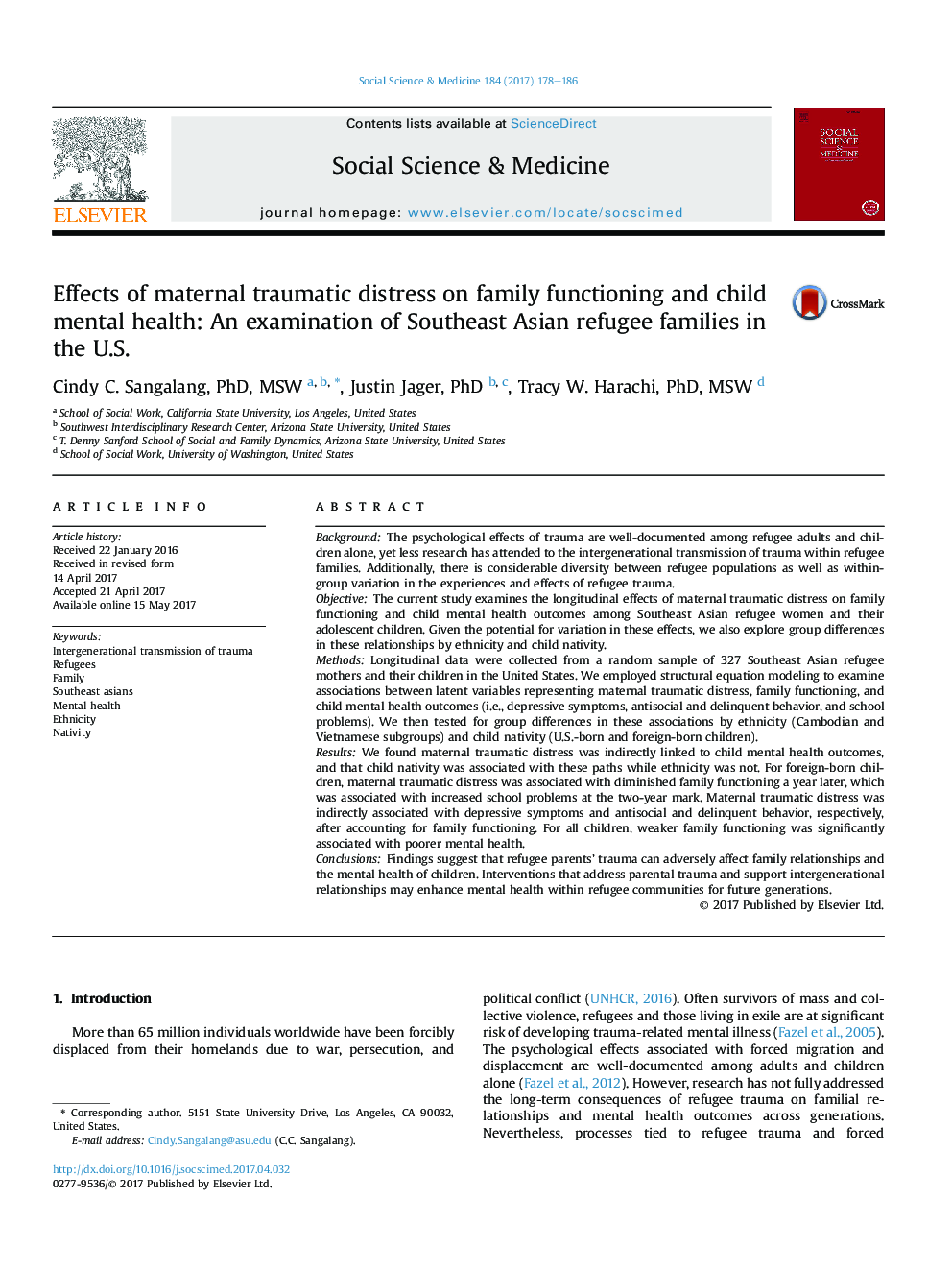| Article ID | Journal | Published Year | Pages | File Type |
|---|---|---|---|---|
| 5046497 | Social Science & Medicine | 2017 | 9 Pages |
â¢Research on the intergenerational transmission of trauma in refugee families remains scant.â¢We examined maternal traumatic distress within Southeast Asian refugee families in the U.S.â¢Maternal traumatic distress had negative effects on family and child mental health.â¢Intergenerational effects were clearest for foreign-born children.
BackgroundThe psychological effects of trauma are well-documented among refugee adults and children alone, yet less research has attended to the intergenerational transmission of trauma within refugee families. Additionally, there is considerable diversity between refugee populations as well as within-group variation in the experiences and effects of refugee trauma.ObjectiveThe current study examines the longitudinal effects of maternal traumatic distress on family functioning and child mental health outcomes among Southeast Asian refugee women and their adolescent children. Given the potential for variation in these effects, we also explore group differences in these relationships by ethnicity and child nativity.MethodsLongitudinal data were collected from a random sample of 327 Southeast Asian refugee mothers and their children in the United States. We employed structural equation modeling to examine associations between latent variables representing maternal traumatic distress, family functioning, and child mental health outcomes (i.e., depressive symptoms, antisocial and delinquent behavior, and school problems). We then tested for group differences in these associations by ethnicity (Cambodian and Vietnamese subgroups) and child nativity (U.S.-born and foreign-born children).ResultsWe found maternal traumatic distress was indirectly linked to child mental health outcomes, and that child nativity was associated with these paths while ethnicity was not. For foreign-born children, maternal traumatic distress was associated with diminished family functioning a year later, which was associated with increased school problems at the two-year mark. Maternal traumatic distress was indirectly associated with depressive symptoms and antisocial and delinquent behavior, respectively, after accounting for family functioning. For all children, weaker family functioning was significantly associated with poorer mental health.ConclusionsFindings suggest that refugee parents' trauma can adversely affect family relationships and the mental health of children. Interventions that address parental trauma and support intergenerational relationships may enhance mental health within refugee communities for future generations.
